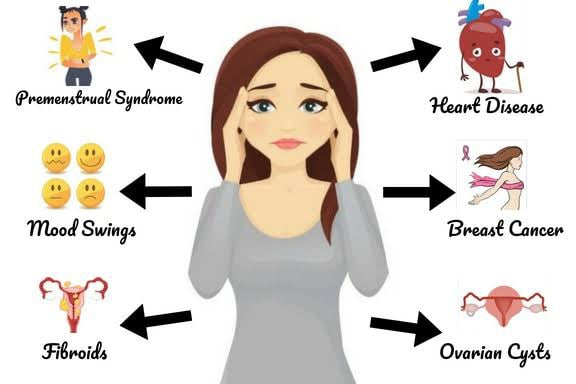
Hormonal Imbalance: 5 Warning Signs and What to Do About Them
Hormonal imbalance may be to blame for a range of unwanted symptoms from fatigue or weight gain to itchy skin or low mood.
Hormones are chemicals produced by glands in the endocrine system and released into the bloodstream. An imbalance occurs when there is too much or too little of a hormone.
Your hormones are important for regulating many different processes in the body including appetite and metabolism, sleep cycles, reproductive cycles and sexual function, body temperature and mood.
No surprise then that even the slightest imbalance may have a noticeable effect on your overall health and wellbeing.
Levels of hormones naturally fluctuate at various life stages, most noticeably during puberty and in women during the menstrual cycle, pregnancy and the menopause. They can also be affected by lifestyle and certain medical conditions.
Managing Hormonal Imbalance To Health: Symptoms And Solutions
Crucial: Recognize symptoms and consult a qualified healthcare provider for tailored treatment—medication, complementary therapies, or lifestyle adjustments—to restore your well-being and balance.
1. Mood Swings
The female sex hormone estrogen has an effect on neurotransmitters in the brain including serotonin (a chemical that boosts mood). Fluctuations in estrogen can cause premenstrual syndrome (PMS) or depressed mood during the perimenopause (the phase before periods stop completely) and the menopause.
What to do: If mood disruptions affect daily life, consider changes like exercise, less alcohol, no smoking, herbal remedies (like St. John’s Wort), or HRT for perimenopausal/menopausal relief. Keeping a symptom diary will also help you and your doctor identify if hormonal imbalance changes could be to blame.
2. Heavy Or Painful Periods
If experienced alongside symptoms like abdominal pain, frequent urination, lower back pain, constipation, and painful intercourse, you might have fibroids. These non-cancerous growths form in or near the womb. Their exact cause is uncertain, but estrogen stimulation and family history may raise your risk.
What to do: If you are suffering symptoms, consult a qualified health professional who may prescribe medication to shrink the fibroids. In severe cases or if medication does not resolve the problem, surgery may be considered to remove them.
3. Low Libido
Low libido often occurs in women during perimenopause and menopause due to declining estrogen and testosterone levels (though women also have testosterone). Other menopausal symptoms like night sweats, fatigue, low mood, and anxiety can also affect your sex life.
What to do: If you are going through the menopause, you may wish to consult a women’s health expert about trying testosterone as part of your HRT. This can improve your libido as well as boost your mood and energy levels. Doctors administer it in very low doses as a gel applied to the skin.
4. Insomnia And Poor-Quality Sleep
During the perimenopause and menopause, the ovaries gradually produce less estrogen and progesterone, which promotes sleep. Falling estrogen levels may also contribute to night sweats which disrupt your sleep, contributing to fatigue and lack of energy.
What to do: The first step is to get an accurate diagnosis. During perimenopause or menopause, consult your doctor about Hormone Replacement Therapy (HRT) to restore estrogen and progestogen levels. Improve sleep by wearing cotton nightwear, using cotton sheets, maintaining a cool, dark bedroom, exercising, and cutting alcohol/caffeine.
5. Unexplained Weight Gain
Various hormone-related issues, like underactive thyroid, PCOS (causing ovarian cysts), and menopause, can lead to abdominal weight gain.






